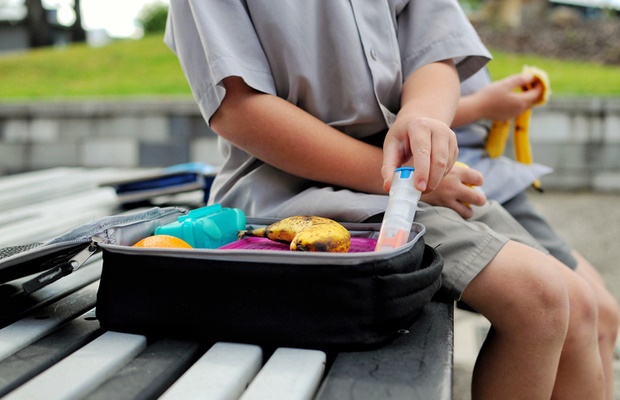
Whether it’s a food allergy or a respiratory allergy, it can be daunting for children who suffer from allergies to start a new school year.
The start of a school career is a stressful time for both children and parents. Throw an allergy that could range from uncomfortable to potentially life-threatening into the mix and the burden can become twice as large.
Too little understanding
While parents send their children to school in the hopes that good care will be taken of them, not enough is being done to provide training on allergies to teachers and ground staff. Health24 reported in 2017 that, according to a peer-reviewed study, only 38% of teachers were able to score more than 50% on a basic test regarding asthma. Although this study was only limited to KwaZulu-Natal, it shows that a lack of knowledge on asthma and allergies is definitely a concern.
This doesn’t even begin to touch on food allergies that can cause fatal anaphylaxis. While it’s up to parents to disclose medical conditions, it can be daunting to leave your child in an unknown environment where you don’t know if adequate medical help will be available.
Take action
Know that allergies should not prevent your child from having a happy, healthy school career. You can take the following measures to control the situation:
1. Give full disclosure to teachers and other parents
Make your children’s teachers and parents of classmates aware of your child's allergies well before the school year starts. You will have the peace of mind that the teachers and other parents are aware that your child may have adverse reactions to certain foods and triggers.

2. Talk to your doctor
There are a number of questions you can ask your doctor to help you prepare your child for the school year. Your doctor should assess your child’s treatment plan to consider if it is still up to date, and can provide an official letter to teachers, stating that your child needs to carry epinephrine injectors (EpiPens), inhalers or other appropriate medication.

3. Don't hesitate to ask questions
There are some things you can ask the school to help you and your child prepare. Ask if there will be adult supervision on playgrounds and in canteens at all times; what the school’s policy is regarding the carrying of EpiPens and medications; where these will be stored; and if the school has proper first-aid measures in place.

4. Equip your child
Teach your child to wash his or her hands, not to accept food from other children if they don’t know what it contains, how to recognise symptoms as soon as they have a flare-up and how to administer their EpiPens or other treatment in case of an emergency. Teach them to not hesitate to talk to a teacher if they feel they are being bullied by other children.

5. Identify triggers
Know whether there will be any triggers, such as classroom pets, certain plants or other allergens in the school environment as this can help you and your doctor provide the proper medication ahead of time. If meals are served at school, ask the cafeteria or tuck shop managers what is on the menu and if any foods could possibly be contaminated with allergens such as nuts.

6. Build healthy relationships
While sophisticated allergy plans may be lacking in some schools, you can bridge the gap by building good relationships with your child’s teachers, classmates' parents and staff to ensure that you can communicate with them freely and that they will support you.

Amid the highest recorded pollen counts in history, Health24 will be bringing you exclusive pollen count updates courtesy of the UCT Lung Institute's Allergy and Immunology Unit.
As the pollen problem worsens, precise and expanded monitoring becomes even more essential. And here's how you can help.
Image credit: iStock




 Publications
Publications
 Partners
Partners















